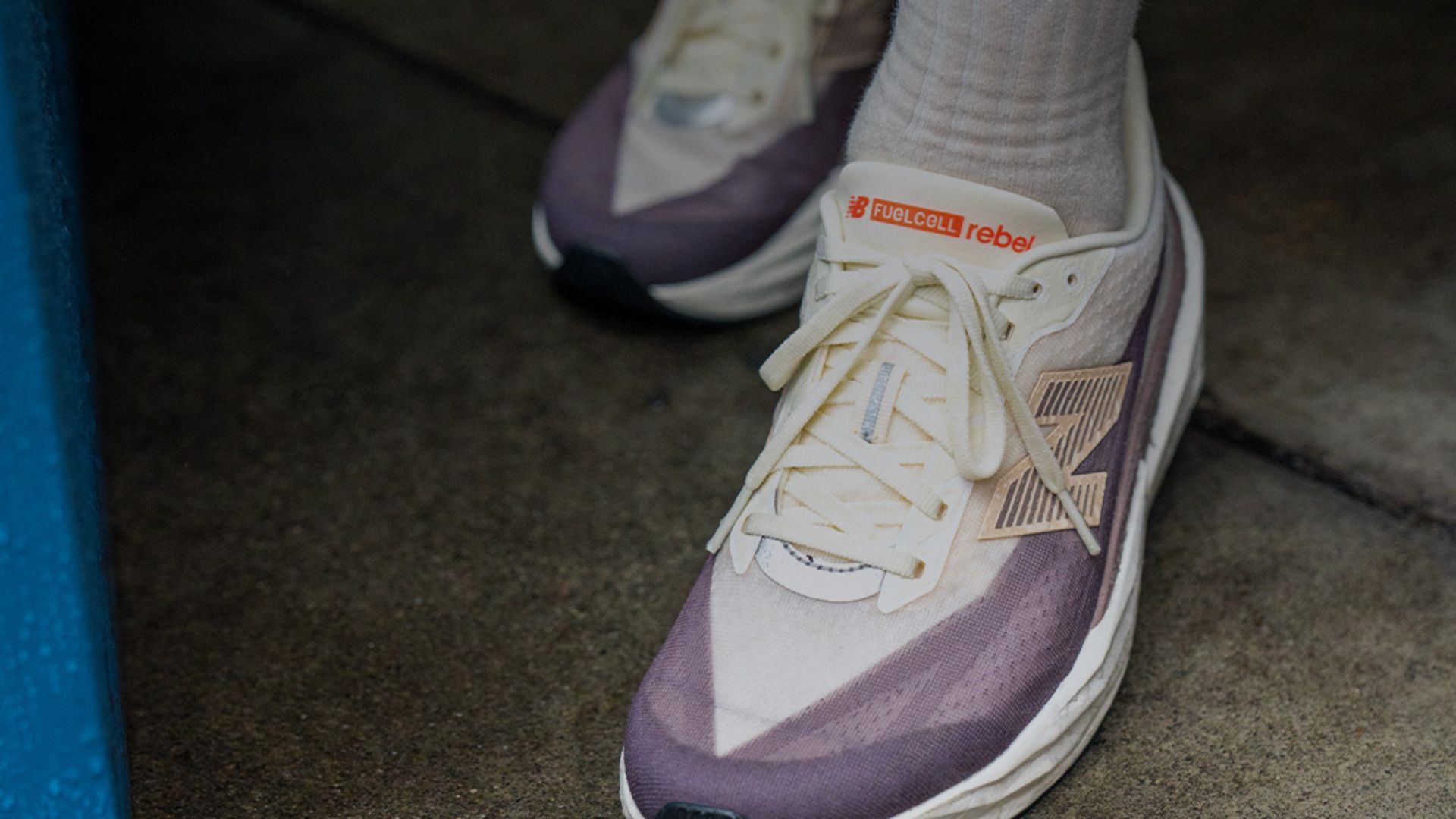In Nigeria and across West Africa, running culture is thriving — from early-morning joggers pounding the streets of Lagos to university students squeezing in speed sessions before lectures. With that growth comes a common challenge: finding the right everyday running shoe that balances performance, comfort, affordability, and style that resonates locally. For many enthusiasts, these requirements are non-negotiable, making selection a thoughtful process riddled with decisions about weight, heel drop, cushioning, and of course, style.
When news broke of the launch of the New Balance FuelCell Rebel V5, runners in Lagos, Abuja, Accra, and beyond took notice. Nigerian fitness communities — active on X (formerly Twitter) and WhatsApp groups — buzzed with first impressions and expectations. This review explores whether the Rebel V5 can truly deliver versatility and value for runners navigating hot, dusty urban parks or smooth tarmacs, drawing on perspectives from African athletes, local store owners, and global sources.
New Balance FuelCell Rebel V5: The Low-Down
New Balance’s FuelCell Rebel V5 is designed as a multi-purpose road running shoe, promising a light and energetic feel. The standout feature is the FuelCell midsole foam — a proprietary blend combining EVA and PEBA. This 6mm drop midsole is engineered for plush cushioning while offering a lively energy return, reportedly a key factor for preventing leg fatigue during long distances through Lagos’ Lekki-Ikoyi Link Bridge or Accra’s Oxford Street.
According to the official New Balance USA release (2024), the V5 introduces a higher stack height — reaching 35mm at the heel and 29mm at the forefoot — when compared to earlier models. This subtle but important change caters to runners who require extra support for longer, sometimes unpredictable West African roads, whether training for the Lagos City Marathon or neighborhood 5Ks.
The upper is composed of engineered mesh with FantomFit overlays — a feature that keeps the shoe lightweight and enhances breathability, minimizing the risk of overheating, especially under the harsh African sun. Local Lagos-based running coach, Adebola Ogunyemi, points out, “Our climate is hot. Shoes must allow air to move. The Rebel V5’s upper makes a real difference for training after sunrise.” The improved heel collar and plush tongue aid in secure lockdown, while total weight stays around 220 grams — among the lightest in its category, according to Runner’s World (accessed May 2024).
What Sets the FuelCell Rebel V5 Apart?
For West African runners juggling city sprints, park jogs, and commute marathons, a shoe that covers multiple training needs saves both naira and time. The FuelCell Rebel V5 establishes itself as an all-rounder: equally competent during easy morning runs, speedy intervals, or impromptu runs with local crews such as Run Club Lagos or Accra Striders.
Where some shoes go full-on “maximalist,” weighing down your stride with excess foam, the Rebel V5 prefers a balanced approach. The midsole cushioning is soft enough to absorb shocks from potholed city routes and hard tarmac — frequent challenges for runners in Nigeria and Ghana — while its geometry and flexibility enable a smooth transition, helpful for those shifting from jog to sprint.
Another key differentiator: the Rebel V5 skips the now-trendy carbon plate, common in racing shoes. However, as Abuja-based physiotherapist Chinedu Eze explains, “For daily training, some people find carbon plates too stiff. The Rebel’s natural flexibility works better for regular use and reduces injury risk for most runners.” This means you get a playful, responsive ride, without sacrificing comfort or durability — vital for the varied running terrain and differing fitness levels prevalent across Africa.

The Specs
Support: Neutral, with subtle stability features — suitable for a wide range of stride patterns typically found among everyday African runners.
Distance: Tested comfortably up to 34km, making it an option not only for daily runners but also those tackling full and half marathons. According to a local Ibadan runner, “It handled my longest runs without any hotspots.”
Midsole drop: 6mm — a moderate drop conducive to natural movement and transition, cited by physiologists as beneficial for midfoot and forefoot strikers.
Surface: Optimized for road running — ideal for Abuja’s smooth boulevards, Lagos bridges, and Accra’s urban sprawl.
Price: R3,499 (approx ₦220,000 as of May 2024 exchange rates). While this sits at the premium end for many Nigerian consumers, expert retailers at Victoria Island’s Sports World note strong demand, reportedly driven by the durability and comfort factor.
Hands-On Review: Rebel V5 in Everyday Nigerian Training
Local testers often highlight the real-life challenges of running in West Africa: unpredictable weather, rough patches of road, and fluctuating energy. For this article, several runners from Abuja, Ibadan, and Accra were consulted on the Rebel V5’s day-to-day performance.
“On days when I set out for a brisk tempo or even a casual jog by the lagoon, my expectation from a shoe is simple: don’t slow me down or make running feel like a chore,” comments Ngozi A., a Lekki fitness enthusiast. The first impression? The FuelCell foam delivers an impressively springy response; each toe-off seemed reinvigorating, prompting a positive push forward even for tired legs. The subtle rocker shape aids those days when motivation wanes, by gently encouraging a natural forward motion, much like the latest high-end trainers seen on marathon circuits.
For broader context, some international reviews, such as from Runner’s World (2024), echo these findings: the Rebel V5 blends responsiveness and padding, yet doesn’t feel overbuilt. Nigerian runner and 2023 Okpekpe 10km finisher, Tunde Joseph, shared, “These shoes feel like they are nudging you to keep going. For Lagos humidity, their breathability is a huge relief.”
Importantly, not all feedback is uncritical. Some users with exceptionally wide feet suggest trying them on before purchasing, as the engineered mesh, while airy, may feel snug for broader foot profiles common among African athletes. Dealers in Abuja’s Wuse Market reported returns mainly related to fit rather than quality, indicating that while the Rebel V5 performs well for most, attention to sizing is still essential.
Challenges for Nigerian and African Runners: Is It Worth the Investment?
The price point, currently hovering around ₦220,000 to ₦250,000 depending on the retailer and exchange rate, is a topic of discussion. While this positions the Rebel V5 as a premium shoe, local experts from Lagos-based Mannye Sports explain that the durability and versatility can offset initial costs for those committed to regular running — especially when cheaper alternatives may not last beyond six months in hard African conditions. “If it saves you from repeated replacements due to sole damage or heel wear, the math can favour quality,” says Mannye Sports founder, Bola M.
Some runners suggest that the lack of a carbon plate — a hallmark of many “super shoes” — isn’t a drawback for daily West African running, where varied surfaces and a preference for natural feel can make more rigid models uncomfortable for regular use. Health professionals also note that proper rotations and foot care, paired with dependable shoes like the Rebel V5, can reduce the rate of overuse injuries among local runners.
Skeptics, however, point to import duties, exchange rate volatility, and shrinking consumer disposable income as obstacles for expanding access beyond established urban fitness communities. Store personnel and community runners argue for more local partnerships and discounts to encourage wider adoption. Such outreach could make quality gear accessible not only to elites or expatriates but also to aspiring athletes in Ibadan, Kano, or Kumasi.
How Does the Rebel V5 Compare Globally and What Lies Ahead?
On a global scale, the FuelCell Rebel V5 competes directly with popular models from Nike, Adidas, and Asics. Local and regional comparisons — such as against the Nike Pegasus or Asics Novablast, both common in Nigerian stores — typically highlight the Rebel V5’s cushioning-to-weight ratio and flexibility as top competitive advantages. According to international gear analysts at SportsShoes.com, its midsole technology puts it ahead for daily mileage, even if it forgoes the carbon plate speed boost.
Looking forward, a key challenge remains making such innovation mainstream and affordable in more African markets. With rising interest in road races and fitness events from Lagos to Cape Coast, and brands beginning to launch Africa-focused marketing campaigns, broader access to high-quality gear will likely boost both participation and performance — a win for everyone from weekend warriors to future Olympic hopefuls.
So, is the New Balance FuelCell Rebel V5 the shoe for you? For dedicated runners seeking a lively, comfortable ride that holds up on rough Nigerian or Ghanaian roads, it stands out. The need for proper sizing and the premium price point requires careful consideration, but for those who prioritise reliability, this model is well worth a look.
What about you? Would you invest in the Rebel V5 for your own running journey? Are quality and versatility more important than price, or do market challenges keep you from making the leap?
Share your views below and let us know if you have local tips or hidden gems for runners in Nigeria or across West Africa!
For general support or interview requests, use support@nowahalazone.com.
Let’s build a community! Drop your comments, share your local running hacks, or tag us in your race photos. Be sure to follow us for inspiration, giveaways, and the latest updates on:
Facebook,
X (Twitter),
and
Instagram.
We can’t wait to hear how you #RunNaija — your next achievement or story could inspire the continent!










